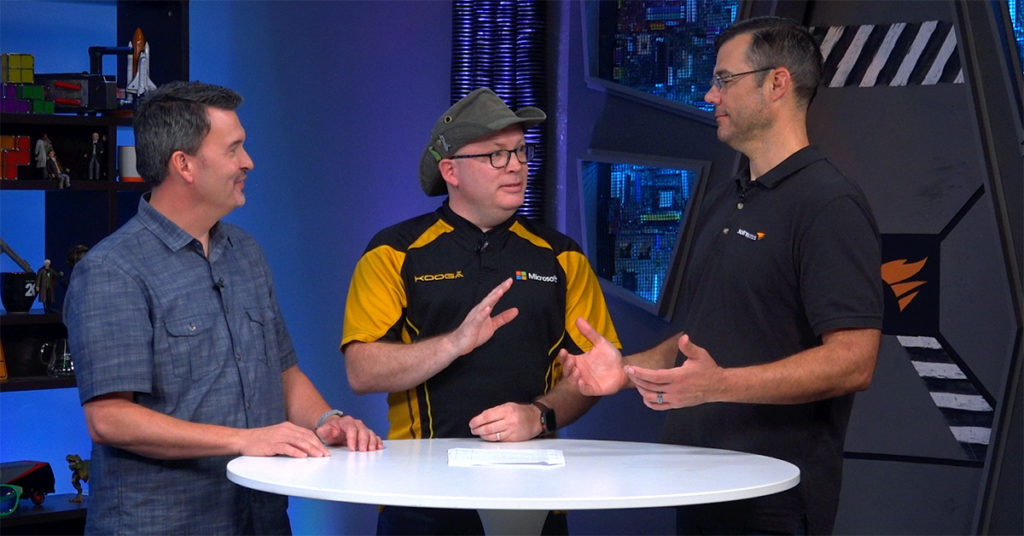Last month I started an analysis about an argument… I mean a “passionate discussion” on social media. My goal in this series is to use that conversation as a framework to explore and solve some sub-optimal thinking patterns that I’ve seen in both beginners and long-time IT veterans.
To re-iterate a point I made in the last post: this series is not about shaming any specific individual. I’ve seen these opinions over and over, and I’m sure I’ve exhibited this type of biased thinking myself.
Anti-Pattern 2: Concern for What We’ll Do When <X> Goes Away
Another line of debate in the thread started when someone pointed out the speed with which they were able to set up a new service on Azure, versus the time it would have taken to do on-premises. The skeptic retorted, “And if and when the day comes when you want to stop running it in the cloud, what then?”
Now, at first glance, this isn’t—in and of itself—a bad line of thinking. Consideration for business continuity is everyone’s job (second only behind security, in my opinion) and cloud services are not—despite marketing materials promises to the contrary—completely bullet-proof, nor are they a one-size-fits-all solution. Asking “what if” is a good reflex for any IT practitioner.
Back to the online debate, someone pointed out that they would still possess the code, so they could just migrate it somewhere else—back on-premises, or to another provider, etc. And this is where the skeptic veered off into irrationality: “They won’t know how to move it because Microsoft has done everything for them for so long they never learned some of the basics.”
If you are a student of history, you have heard this rationale before:
- Kids have gotten so used to texting, it’s no wonder no one can spell correctly.
- If everyone relies on calculators, nobody will know how to do simple math.
- People get their news from TV, and nobody is going to remember how to read a newspaper.
- Phone calls have gotten so cheap, nobody even knows how to write a letter.
- If we all get used to these horseless carriages, soon folks won’t know how to take care of their own horses!
- And so on.
The underlying message isn’t as it appears on the surface. The speaker is rarely concerned for the welfare of the community at large, or for everyone else’s ability to “survive” a future apocalypse when calculators and the batteries to power them are wiped from the planet. No, what the speaker is expressing is a fear that their skills—hard-won and complex—will no longer be valued, and they will need to find a new set of complex skills to maintain their status.
I wrote about this way back in May 2015, when there was a news item positing that Cisco may move away from the network device command line in future device designs. The fact is, Cisco still might do that. But in the intervening four years, it’s become clear that the command line is being augmented (a better and healthier way of thinking about it than saying it’s being replaced) by code-driven networking commands.
In that same article, I wrote about how to correct this flawed reasoning: if you’re truly a one-trick-pony who knows only a single technique or tool, then I guess you have reason to worry. But the fact is that in my 30+ years working in IT, I’ve never met one of those. Everyone I’ve had the privilege to work with has not only understood how to perform a task, but when and why. And that’s the real knowledge that you carry with you from project to project, software tool to software tool, and job to job.
Back to the skeptic’s concern: what will do if we decide to stop running things in the cloud? While it’s true we may have forgotten specific legacy tricks or techniques, we won’t have lost our ability to think, investigate, and learn. Plus, the path to the future rarely leads backward. The odds of migrating off cloud back to 386’s running Novell 3.11 is minimal.
And They All Lived Happily…
Oh come on, you’re smarter than that. If you’ve been on social media for more than 15 minutes, you know the skeptic had more to say. Stay tuned for my next (and final) post, where I expose the hidden truth about vendors: They’re trying to sell you something!!




